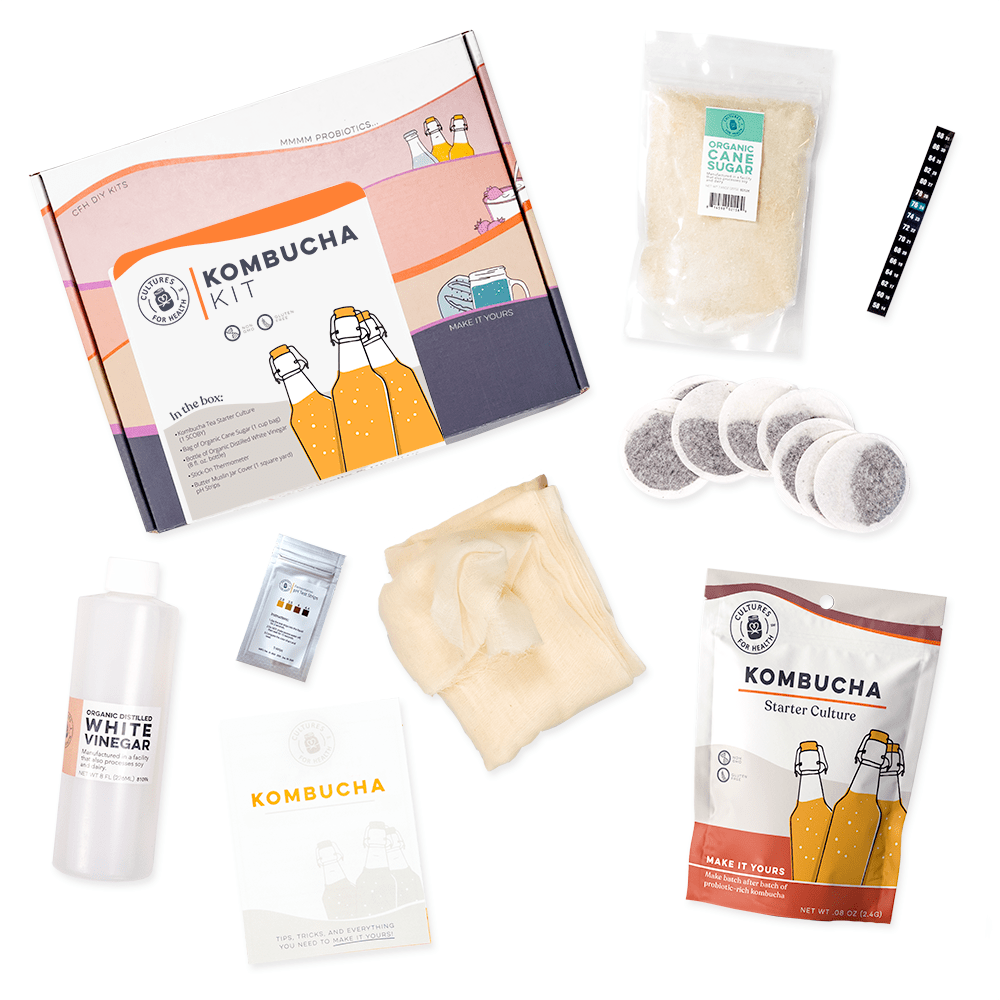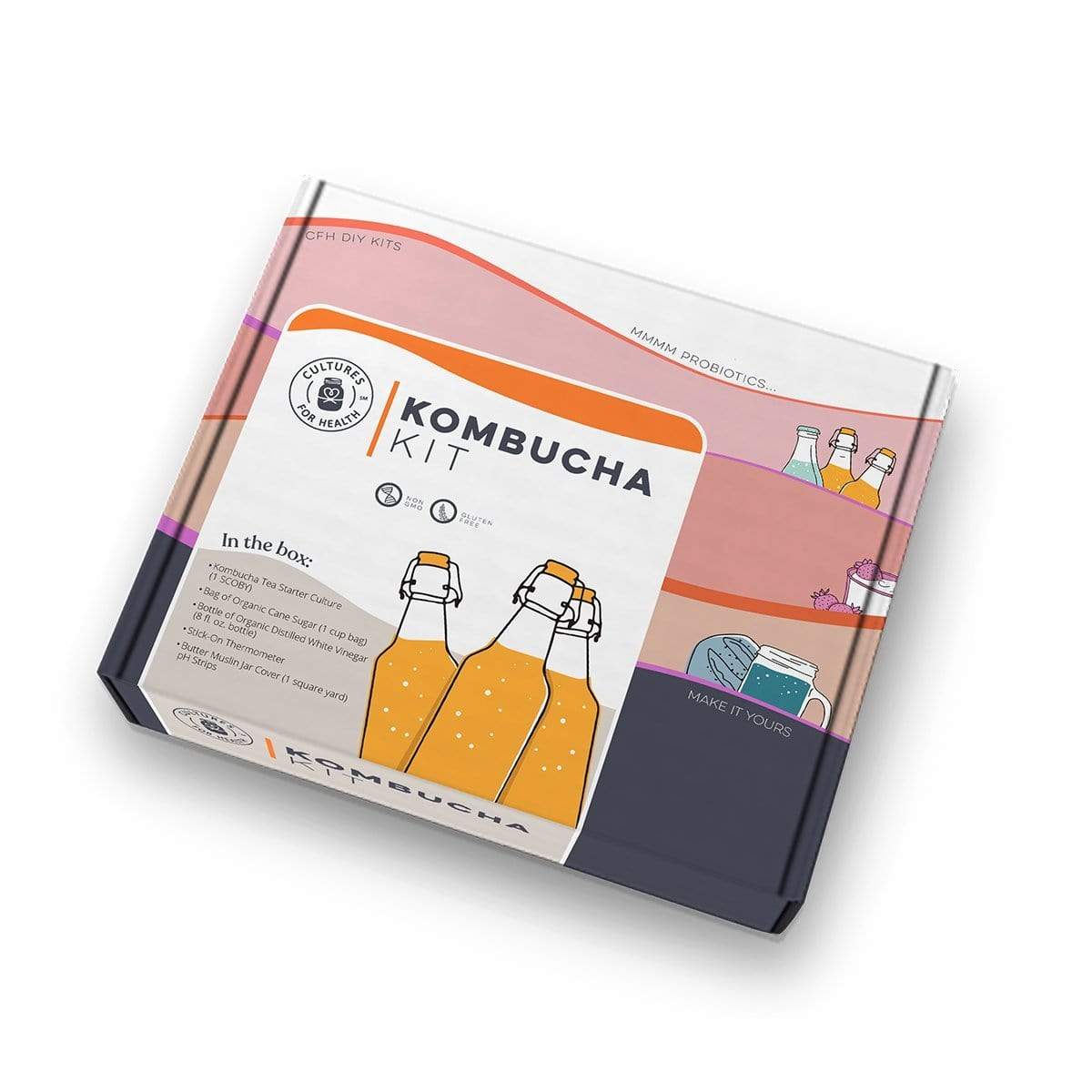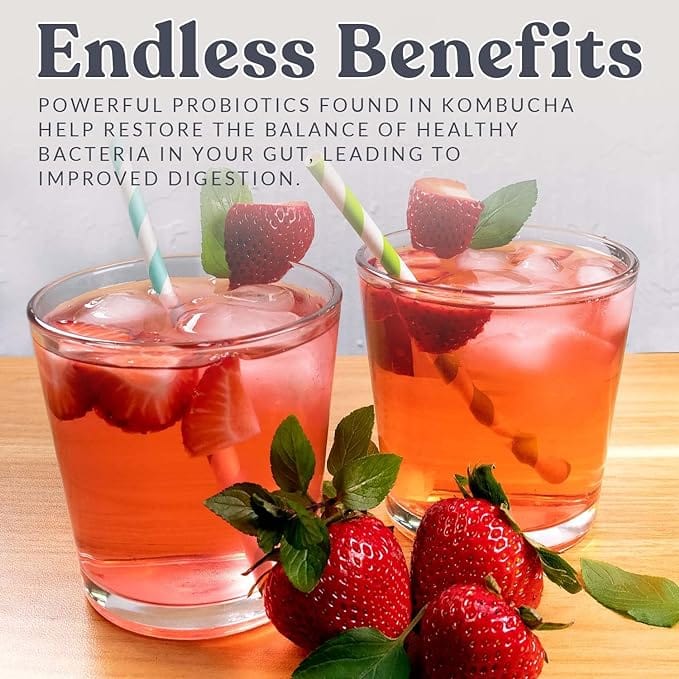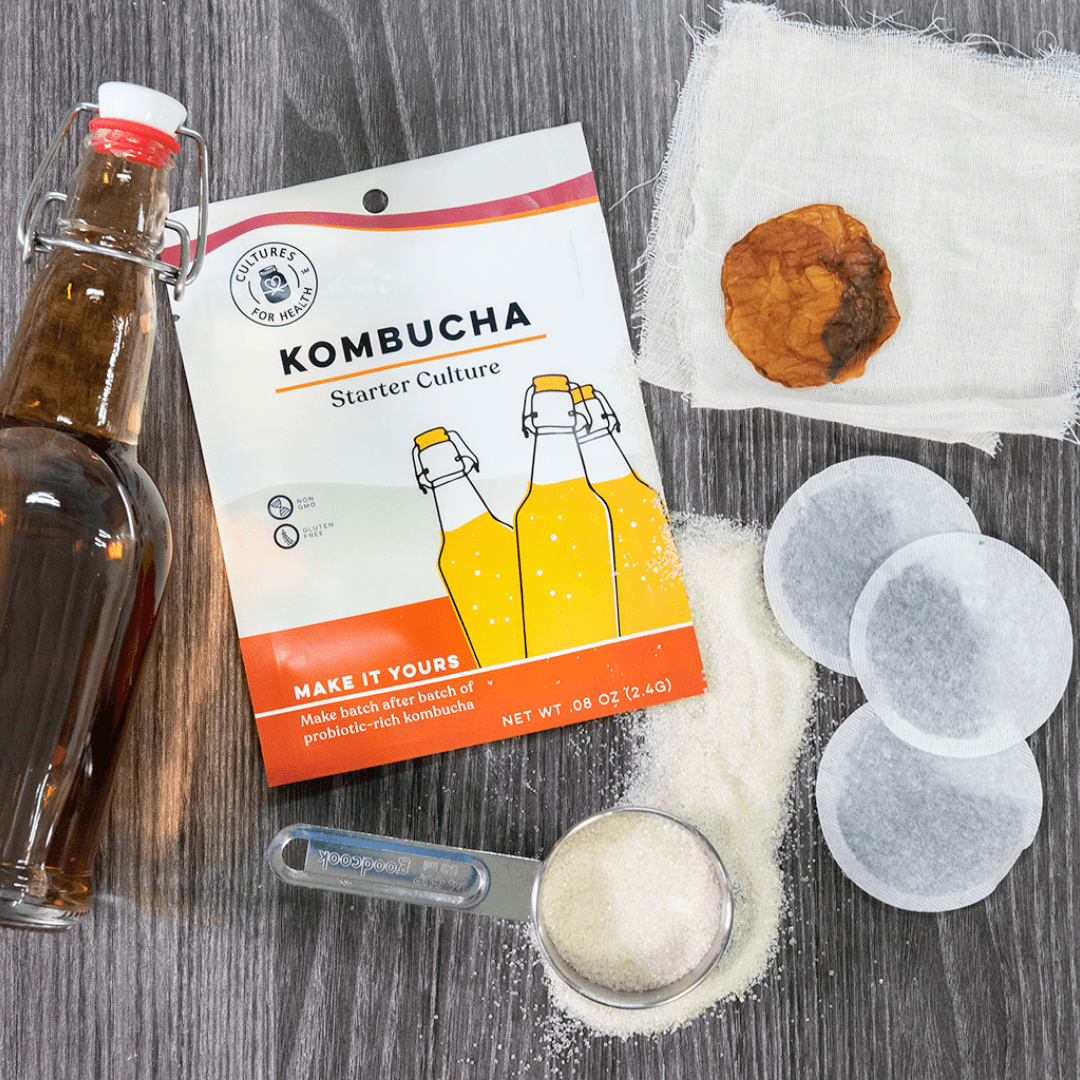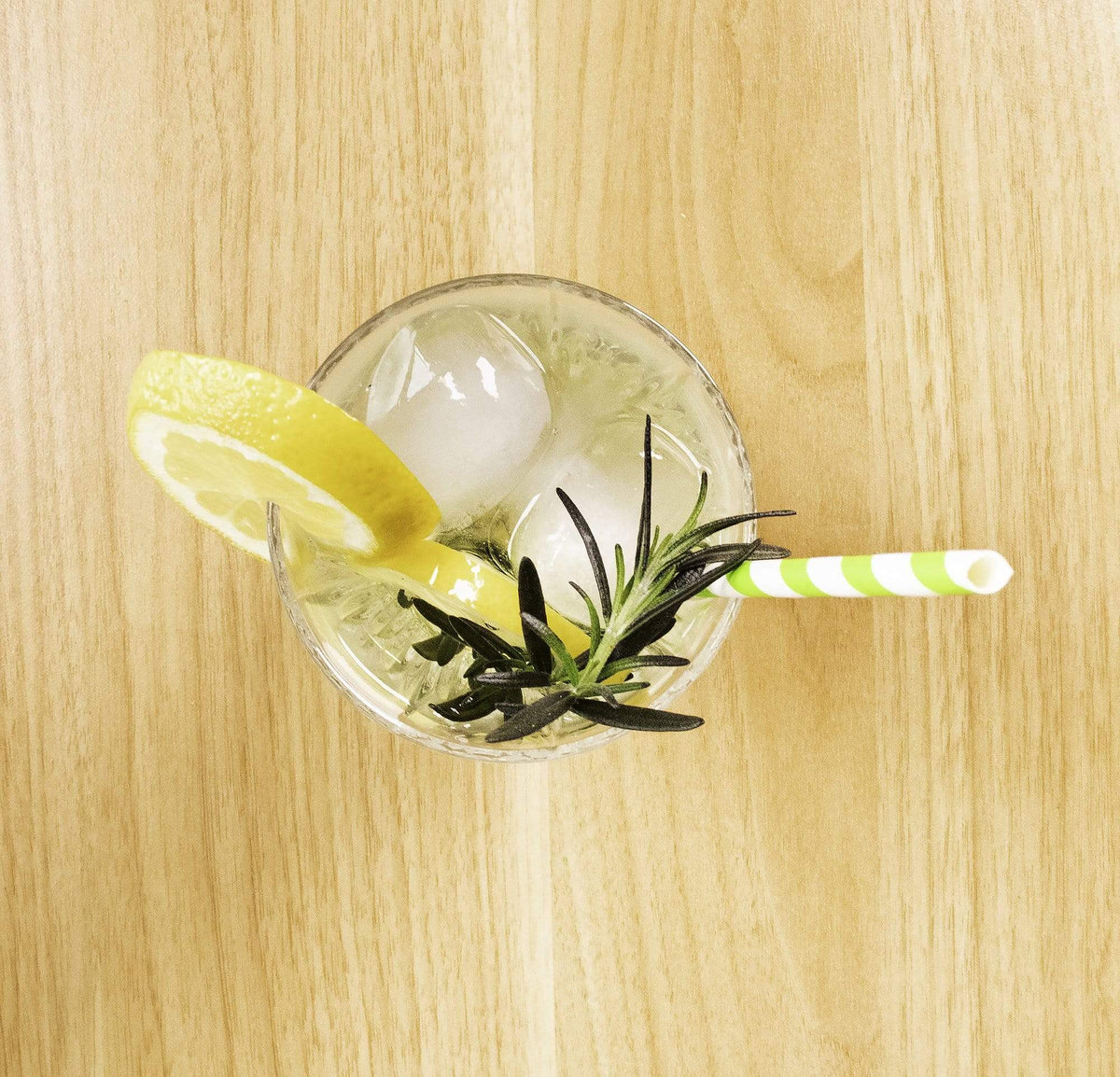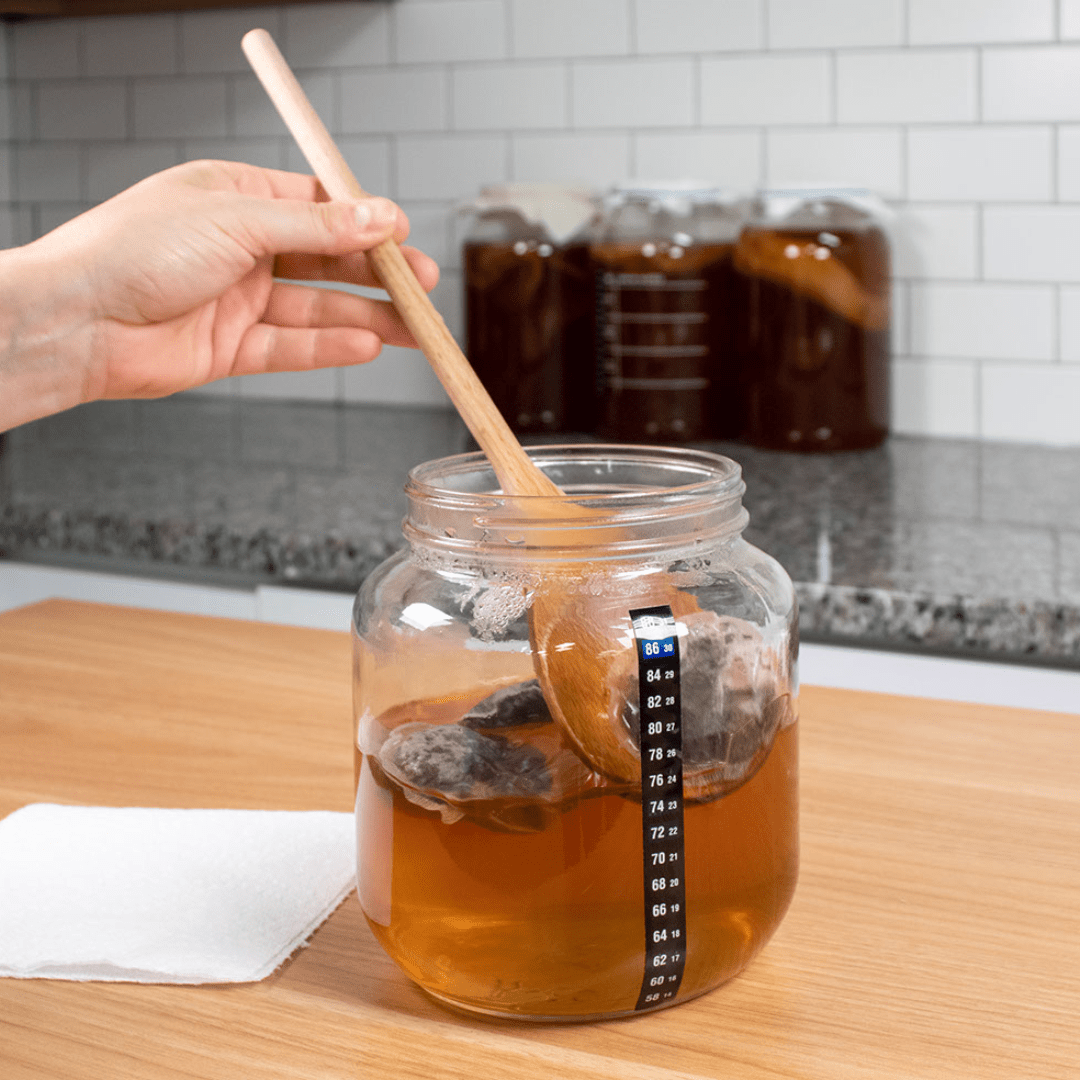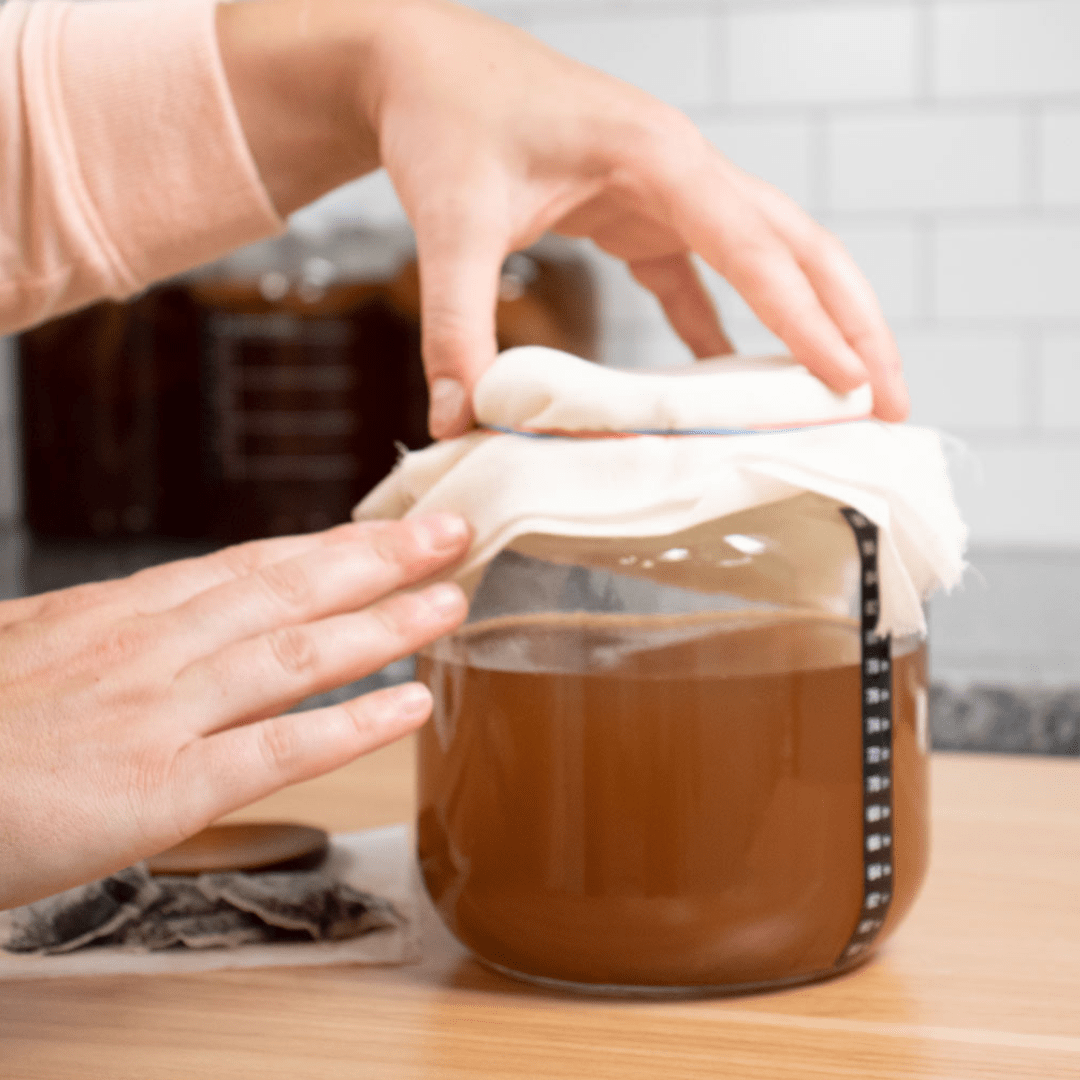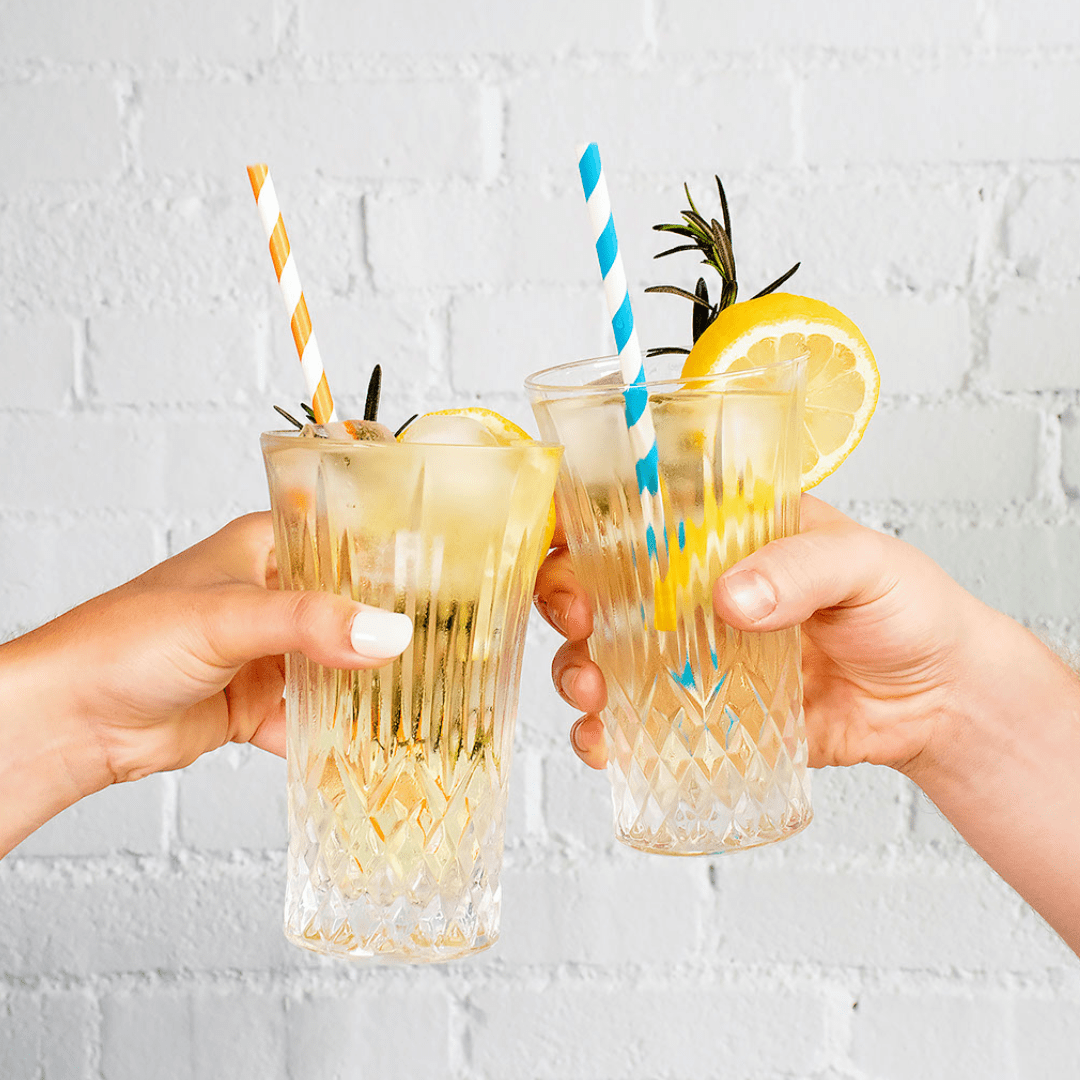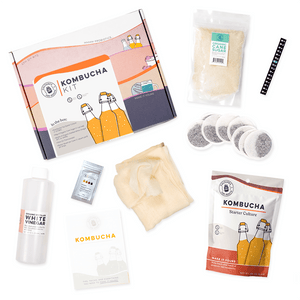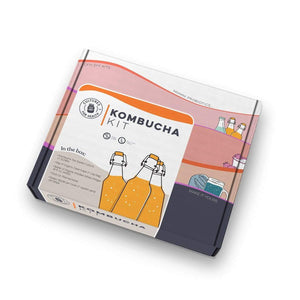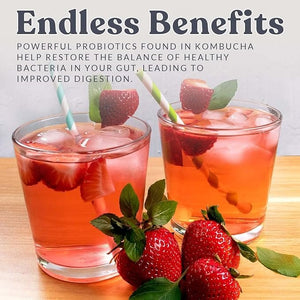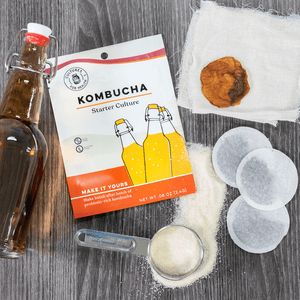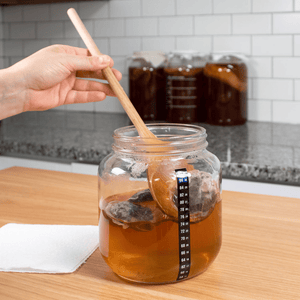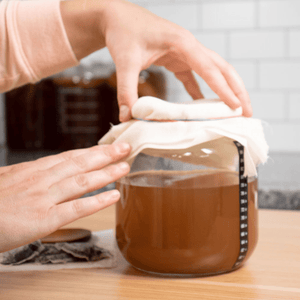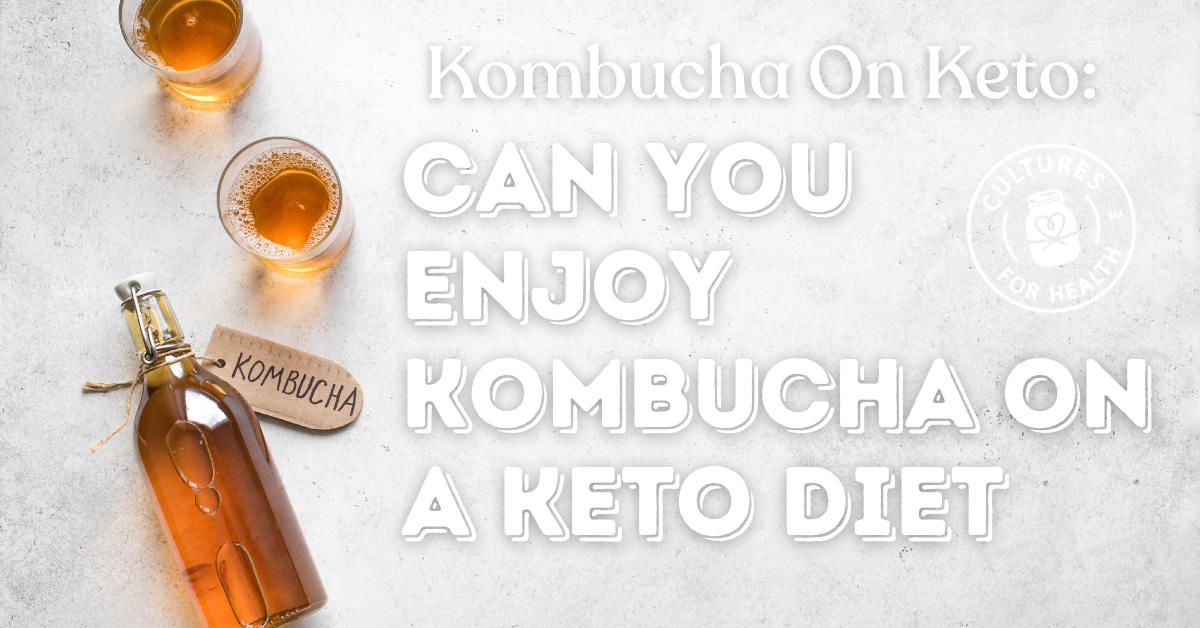
Kombucha, the fermented tea drink with a thousand health claims to its name, has become so popular in recent years that there are now hundreds of kombucha brands out there. But, given that it’s made from tea, you may wonder, what about caffeine? Does kombucha have caffeine? And if so, how much?
Download our KOMBUCHA Guide and Recipe book today and learn about Kombucha and caffeine.
If you like drinking kombucha but aren't a fan of caffeine, then you should read this article.
Is There Caffeine in Kombucha?
The short answer is yes. There is some caffeine in kombucha — but it's not enough to get you jittery. To better understand this, let's dig deeper.
Kombucha
Kombucha is a fermented tea beverage of East Asian origin that has been used for centuries in Eastern Europe and Russia. It’s made by adding:
- a SCOBY (Symbiotic Culture Of Bacteria And Yeast)
- tea (black, white, or green, etc.)
- sugar
The mixture is then allowed to ferment for 7-30 days. The fermentation process produces acetic acid that gives kombucha its distinctive taste. It also creates a probiotic-rich drink that contains many health benefits.
Kombucha contains many different types of beneficial bacteria, including:
- Bifidobacteria
- Lactobacillus
- Acetobacter
Kombucha has been used for centuries as a medicine and beverage in Eastern Europe, the Middle East, and Africa.
Kombucha Starter Kit
Caffeine
Caffeine is an alkaloid found in many plants, including coffee beans and tea leaves. It's also found in chocolate, cola drinks, energy drinks, and red wine, among other sources. Caffeine is added to various beverages to enhance:
- energy levels
- alertness
- mental performance
Caffeine is beneficial for those who want to increase their energy levels, but it's also known to cause anxiety and stress. Caffeine can lead to insomnia and jitteriness if taken in high doses.
Caffeine in Kombucha
Kombucha contains caffeine, but not nearly as much as coffee or tea. Kombucha has about 1-2 milligrams of caffeine per ounce (about 10-15mg/8 fl oz). By contrast, coffee usually contains around 11-12 milligrams per fluid ounce (95mg/8 fl oz).
Kombucha contains about one-third the amount of caffeine as one cup of black tea would have. It’s one of the least potent sources of caffeine, compared to other beverages such as coffee or tea.
In a nutshell, kombucha contains naturally occurring caffeine, just like most other teas. This means that if you're careful with your dosage and don't overdo it, you can enjoy kombucha without worrying about getting jittery or restless. 
How Much Caffeine is in Kombucha?
The caffeine content of kombucha is typically 3-6 mg/100 ml. However, it can be higher or lower depending on factors such as the type of tea, temperature, fermentation conditions, and other ingredients used in the kombucha recipe.
Kombucha Fermentation Process
As you already know, kombucha is a living fungal colony (a.k.a. SCOBY) and needs food and a warm environment to survive. That’s where your tea and sugar come in.
The kombucha SCOBY consumes the tea and sugar for food. As it digests the sugar and tea in the solution, it grows, forming new “baby” colonies.
The tea used in making kombucha provides the microorganisms in the SCOBY with nitrogen for their metabolism and makes them grow faster.
Caffeine has a stimulating effect on the growth of the microorganisms involved in making kombucha. Caffeine and theophylline are also needed for building nucleic acids. Yeast and bacteria break down caffeine as a key nutrient during fermentation.
Early studies on kombucha believed that the fermentation process doesn’t decrease tea's caffeine content. Researchers were of the view that the amount of caffeine in initial tea leaves would be the same as in finished kombucha.
But, a few recent studies have shown a decrease in caffeine content by 40% after three weeks of fermentation. Researchers are now saying that caffeine might not be removed completely during fermentation, but its concentration declines significantly after 21 days.
In his work,The Green Tea Book, Dr. David Chappuis also reported a reduction of caffeine by 25% during the first 14 days of fermentation.
There is a lot of conflicting information on this subject. Some studies have found that caffeine is significantly reduced during fermentation, while others have not. So, it is difficult to say for sure whether caffeine levels decrease during fermentation.
Caffeine Content in Different Types of Raw Tea Leaves (Without Brewing):
Types of Tea |
Caffeine Content (mg/g) |
|
Green tea |
34.86 mg/g |
|
Black tea |
28.54 mg/g |
|
White tea |
27.17 mg/g |
|
Oolong tea |
19.67 mg/g |
|
Pu-erh |
22.4 (mg/g) |
|
Fujian Oolong tea |
7.44 (mg/g) |
Shocked to see green tea on top? Well, let me explain!
While black tea, green tea, and oolong are all made from the same plant, Camellia sinensis, the processing methods and growing conditions can affect the amount of caffeine in the leaves. These teas are processed differently to give them different flavors and health benefits.
Green tea is steamed and then dried, while black tea undergoes oxidation. Oolong is a cross between green and black teas.
Black tea doesn’t actually contain more caffeine than green tea. It's just harder for your body to extract the caffeine from green tea. Why? Because green tea leaves contain more catechins — powerful antioxidants. These catechin molecules bond with the caffeine molecules, hiding them from your enzymes. This doesn’t happen with black tea because oxidation causes the catechins to break down and form larger, more complex molecules with different antioxidant properties.
Long story short, specific caffeine levels in your kombucha will vary with the type and amount of tea, fermentation conditions, length of steeping, and so forth.
How Do You Get The Caffeine Out of Kombucha?

If you are sensitive to caffeine and wondering if can you drink kombucha every day, using low-caffeinated or decaffeinated tea is a great way to avoid caffeine in kombucha. This will give you a healthier drink that contains no caffeine and can be enjoyed daily.
Fujian Oolong tea is often used for making kombucha because it has very low levels of caffeine (see above). This makes it an excellent choice for those who want to make kombucha with a lower caffeine level.
Some people recommend increasing the fermentation process to decrease the amount of caffeine in your kombucha. However, as previously stated, there is a lot of conflicting information on this subject. Some studies have found that caffeine levels decrease during fermentation, while others have not.
Water Kefir - A Caffeine-Free Alternative To Kombucha

Water kefir has many of the same benefits as kombucha, but with one key difference: It's made from water and sugar rather than tea, making it a 100% caffeine-free powerful probiotic drink.
Water kefir has been around for centuries but only recently has become popular in the Western world. The health benefits of water kefir are numerous, but it is most commonly known for:
- preventing digestive problems such as diarrhea, bloating, and constipation
- improving digestion of food
- increasing nutrient absorption
- boosting the immune system
- reducing inflammation
- promoting healthy skin
- improving cognitive function
- improving moods
Water kefir is also easier to make than kombucha because you don't need to wait for it to sit in a jar fermenting for weeks before drinking it. It just takes 24-48 hours to ferment, and all you need is sugar water and water kefir grains to get started!
For More Detail Read: Kombucha Vs Water Kefir
The Takeaway: Caffeine in Kombucha
To sum up, the caffeine content of kombucha is low compared to tea and coffee, but it can vary depending on the tea type and fermentation conditions. So while one cup may contain only 10 mg of caffeine per serving, another cup may have 15 mg or more per serving.
One cup (8 fl oz) of brewed coffee contains about the same amount of caffeine as 6 to 8 cups of kombucha. So if you’re worried about the caffeine content of kombucha, just know it’s a very low level — barely more than in a bar of milk chocolate!













